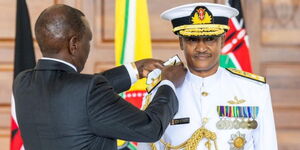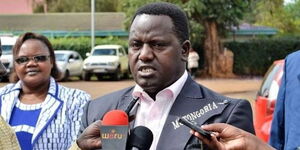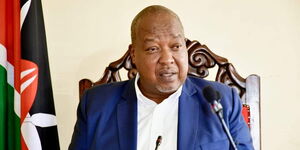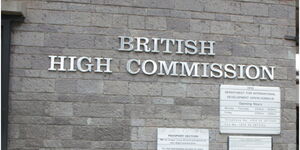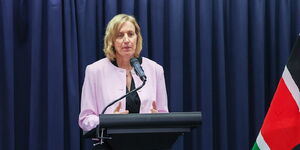The president's move to overhaul Nairobi is not political interference but a partnership with the county government, Nairobi governor Johnson Sakaja has clarified.
Sakaja was forced to issue a clarification after concerns emerged that the national government was encroaching on the jurisdiction of the county in the capital. He emphasised that this was a deliberate effort to involve the private sector in a new approach to improving the city.
“Partnering with the private sector for the purpose of development is very encouraged. For example, after cleaning the city and collecting garbage taken to Dandora, we are partnering with a Chinese company to produce 45 megawatts of power," Sakaja explained.
The governor added, "We already have an agreement with the government through the Ministry of Energy on a power sale arrangement."
On Sunday, President William Ruto announced that the national government and Nairobi County had agreed on four areas of development, into which the state would channel funds.
This deal bears a striking resemblance to the controversial Nairobi Metropolitan Services deal entered into in 2020.
Ruto said that the deal involves a citywide clean-up initiative and that the national government is in the final stages of signing an agreement with the private sector to support these efforts.
Following the president's announcement, Sakaja clarified that the collaboration model would extend beyond waste management to other sectors, such as housing and infrastructure.
According to the county boss, support from the national government is essential for Nairobi's overall development.
“Nairobi is home to the Executive, Judiciary, Legislature, and key offices. It’s critical we work together,” Sakaja said. “Some roads fall under the county, others under the national government - but wananchi don’t care who’s responsible; they just want services delivered.”
City Lighting
On the issue of street lighting, Sakaja announced his regime was in discussions with the Ministry of Energy, Kenya Power and EPRA to address poorly-lit areas in the city after the President specifically called out the issue on Sunday.
To this effect, the governor proposed that a portion of the rural electrification levy to be redirected to improve city lighting.
Nairobi residents, according to Sakaja, contributed approximately Ksh8 billion monthly in electricity bills, which includes a 3.4 per cent rural electrification levy.
“If we redirect just that portion into lighting up Nairobi, we can make the city brighter, safer, and extend business hours,” Sakaja said.
Part of the reason the president is intent on transforming Nairobi is that he strongly believes Kenya has the potential to move from a third-world to a first-world country over the next three decades.
One of the most tangible clean-up exercises under Ruto's regime is the cleaning up of the Nairobi River, in an exercise which is expected to be completed by January 2027.
A bigger chunk of the Ksh40 billion allocated to the project will go towards the construction of the sewerage system from households to make Nairobi a modern city.




